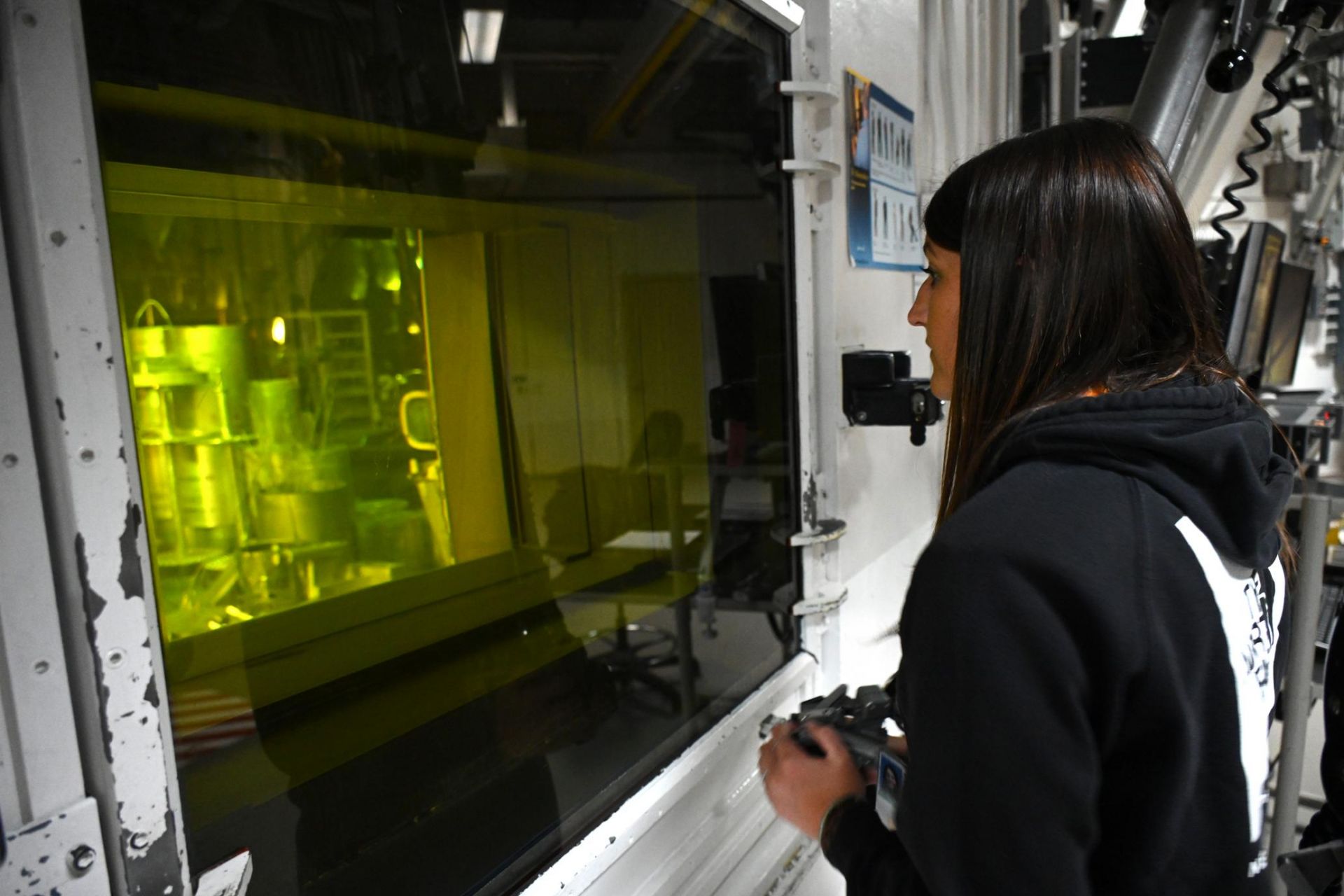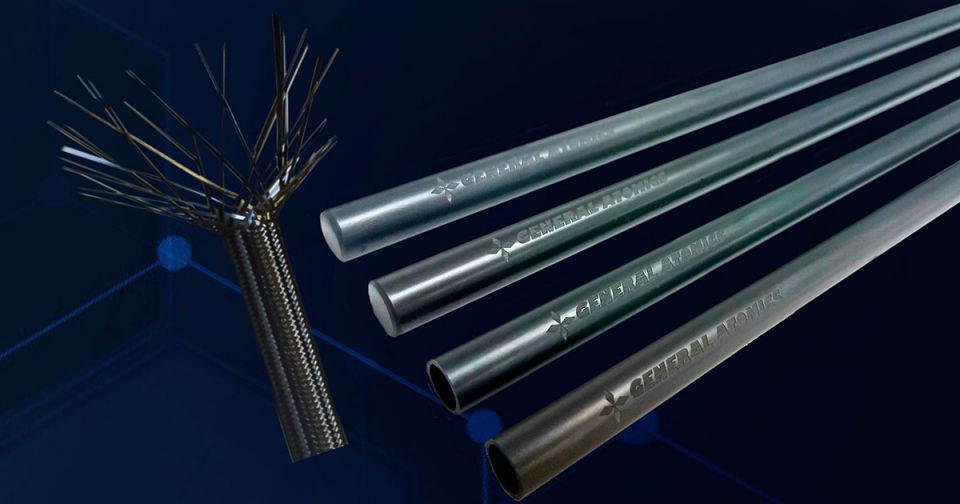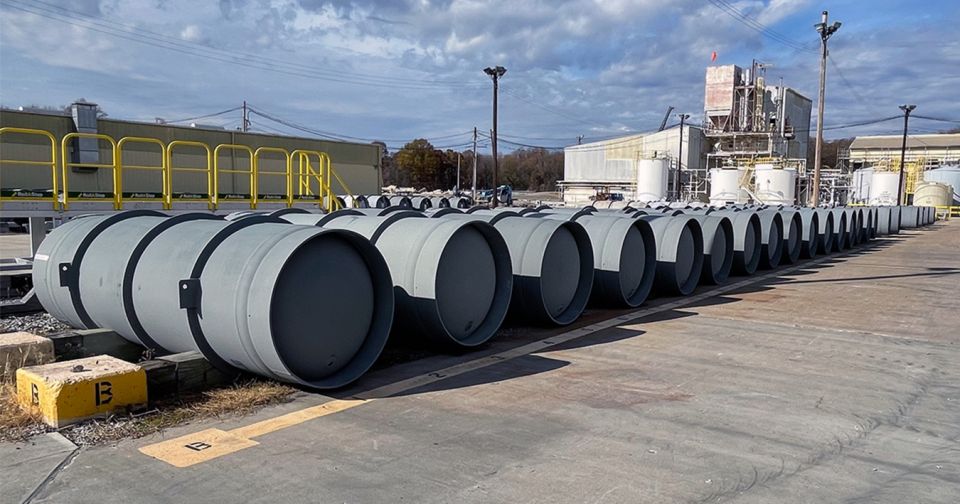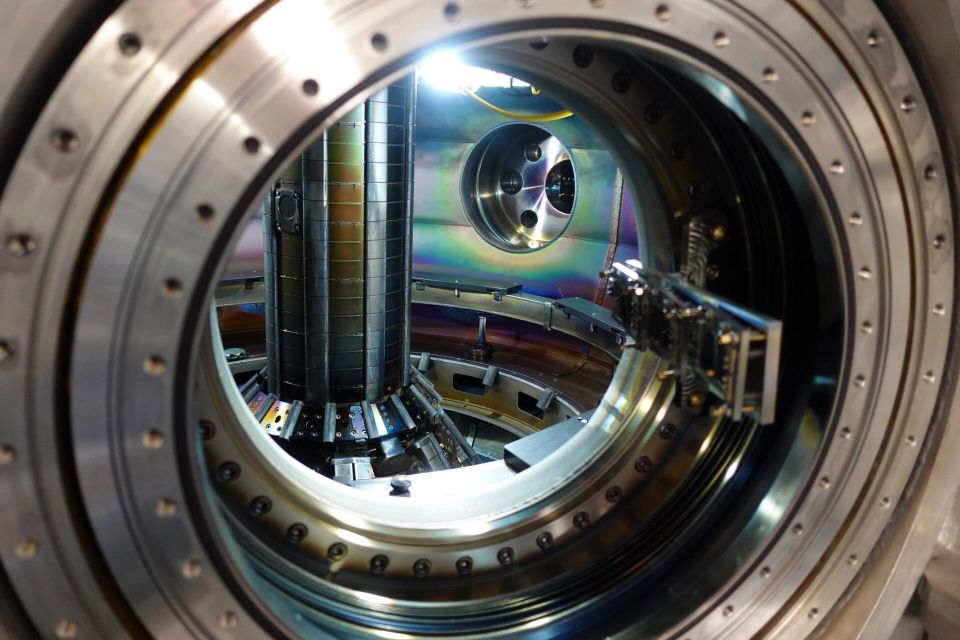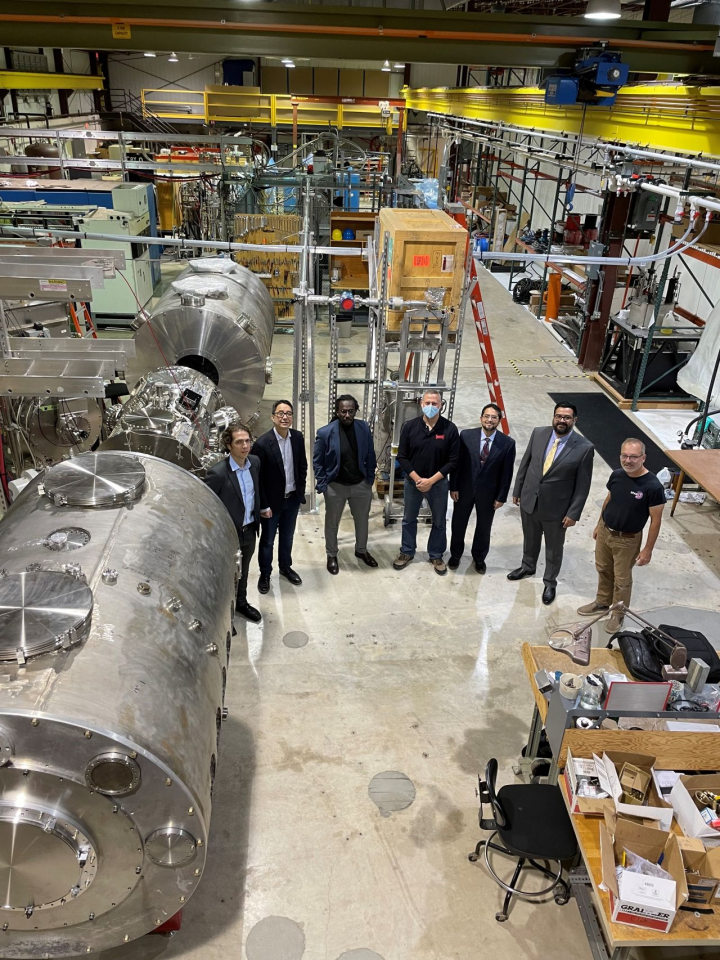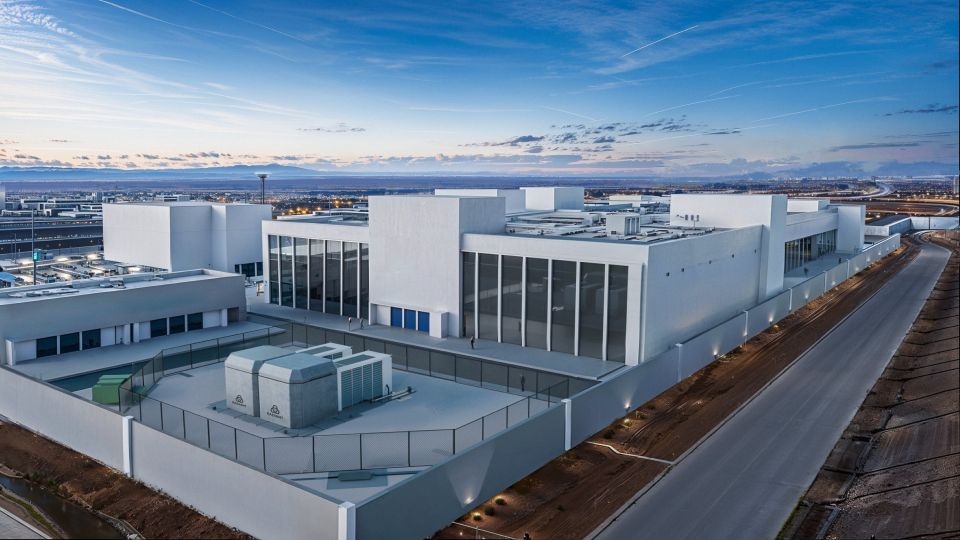Fuel specs: Like Oklo’s Aurora, the EBR-II was a sodium-cooled fast reactor. Unlike Aurora, it was a breeder reactor that used high enriched uranium containing more than 20 percent U-235.
Aurora is designed to use metallic uranium-zirconium fuel with uranium enriched up the HALEU limit of 20 percent U-235. According to the DOE’s own October 15 announcement, Oklo’s Aurora will “operate on both [HALEU] and used nuclear fuel.”
Onward with recycling: In July, Oklo announced that it had completed an end-to-end demonstration of its advanced fuel recycling process in collaboration with Argonne National Laboratory and INL under a $5 million cost-shared research project awarded by the DOE’s Advanced Research Projects Agency–Energy (ARPA-E) under the Optimizing Nuclear Waste and Advanced Reactor Disposal Systems (ONWARDS) program. Oklo has also received previous DOE support through several GAIN vouchers to advance its Aurora Powerhouse design, along with additional funding to demonstrate recycling technologies through ARPA-E.
“We are proud of our collaboration with INL and DOE as we move closer to turning on our first commercial plant that uses this recovered nuclear fuel in just a few years,” said Jacob DeWitte, cofounder and chief executive officer of Oklo.
The approval, and next steps: The DOE reported in its own October 15 announcement that the conceptual safety design report (CSDR) was first submitted earlier this year to the DOE’s Idaho Operations Office, which is the nuclear safety and regulatory authority for the project.
CSDR approval is part of the DOE’s comprehensive review process. Next up are the preliminary documented safety analysis before construction and the documented safety analysis after construction and commissioning.
“The approval of the CSDR is a critical step toward fabricating fuel for Oklo’s first commercial deployment,” said Jess Gehin, INL’s associate laboratory director for nuclear science and technology. “As the nation’s nuclear energy research laboratory, we are committed to partnering with companies like Oklo to advance fission technologies and deliver clean energy solutions.”
Reactor plans: The NRC is now involved in preapplication activities with Oklo on Aurora, which it describes as a “compact fast reactor that builds on the Experimental Breeder Reactor-II and space reactor legacy” with heat “transported using heat pipes that function as thermal superconductors.” Aurora would have a maximum power level of 15 MWe, according to the NRC.
Oklo received a site use permit from the DOE to demonstrate its reactor technology at INL and was awarded HALEU fuel material, also from INL, in 2019. In September, Oklo finalized a memorandum of agreement with the DOE to begin site characterization of its preferred location to site a microreactor and will use site characterization data to support its license application to the NRC.
According to Oklo, the company “is actively engaged with the NRC as it prepares to submit an application within 12 months.” Elsewhere on its website, Oklo says it “will deploy its first commercial advanced reactor in the United States before the end of the decade.”
Oklo previously submitted an application in March 2020 that was denied without prejudice in January 2022.
